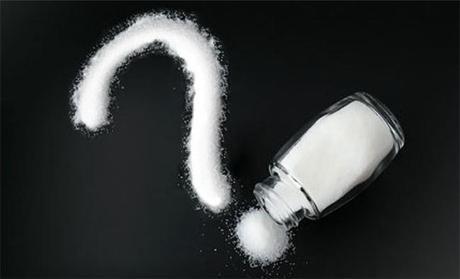
Is salt a white poison, like sugar and flour? Or is it essential and something a lot of people are deficient in? Could you feel better by including more salt in your diet?
The role of salt is often discussed, and warnings against salt usually win big headlines.
Fox News: New study indicates that reducing salt intake could save 100,000 lives per year
But the science is not nearly as clear as some believe or pretend.
Questionable Scientific Support
A relevant scientific review showed that there is no evidence that a reduced salt intake affects the risk of heart disease or life expectancy. And the reduction in blood pressure level is often marginal:
- The New York Times: No Benefit Seen in Sharp Limits on Salt in Diet
- The New York Times: Salt, We Misjudged You
To further complicate the picture people get most of their salt intake from processed and junk food. Often from low-fat products, where the salt helps restore some of the lost flavor. Furthermore, there’s a lot of salt in bread and soda.
In other words: if you try to eat less salt you’re also avoiding junk food. So if a benefit is observed in studies (unclear, according to articles above) – then what was the cause? Less salt or less sugar and starch? We can’t know.
Conclusion
Avoid junk food and bread. This will make you avoid unnecessary amounts of salt. Whether you’d benefit from a further reduction in your salt intake, is highly doubtful.
It may also be that an increased salt intake is only a risk factor in combination with a high-carb diet. High insulin levels cause water and salt retention in the body. You may experience bloating (for example around your ankles) and your blood pressure may increase.
Risk of Salt Deficiency?
Eating a low-carb diet, thus reducing your insulin levels, will often make you excrete more fluid and the bloating goes away. In addition, you’ll lose more salt in your urine.
Losing more salt at the same time that you’re avoiding overly salty junk food may push you into salt deficiency. This is most typical when you first switch to LCHF, but may also appear much later.
Symptoms and Solutions
Typical symptoms of salt deficiency are dizziness, headache and fatigue (especially, but not exclusively, in the context of exercising). It can also cause difficulty concentrating (“brain fog”) and increase the risk of constipation.
Fortunately there’s a simple way to cure this: drink a glass of salt water.
- Pour a big glass of water
- Mix in half a teaspoon of common salt
- Drink
If your symptoms improve significantly or disappear within 15-30 minutes, they were caused by salt deficiency and/or dehydration.

